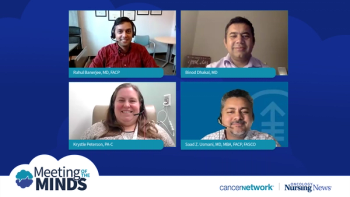
Medical experts examine the factors that make Sarah an ideal candidate for CAR-T therapy in the second-line setting, focusing on how her age, fitness, and early relapse influence treatment decisions and exploring alternative options.

Your AI-Trained Oncology Knowledge Connection!


Medical experts examine the factors that make Sarah an ideal candidate for CAR-T therapy in the second-line setting, focusing on how her age, fitness, and early relapse influence treatment decisions and exploring alternative options.

This video episode follows the journey of a 55-year-old female tech CEO with multiple myeloma, highlighting her treatments, relapse challenges, and transition to ide-cel, supported by her active lifestyle and strong support network.
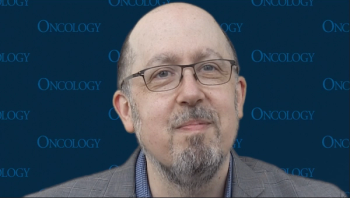
Cytokine release syndrome was primarily low or intermediate in severity, with no grade 5 instances reported among those with diffuse large B-cell lymphoma.
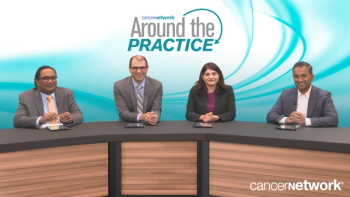
Panelists discuss how emerging therapies like bispecific antibodies, chimeric antigen receptor (CAR) T cells, and novel drug combinations are reshaping treatment options for patients with relapsed/refractory multiple myeloma (R/R MM) who have exhausted standard approaches.
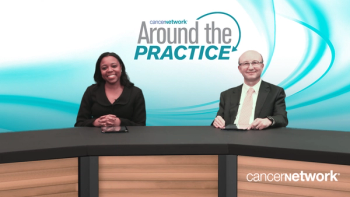
Panelists discuss how Brandi first noticed symptoms leading to her paroxysmal nocturnal hemoglobinuria (PNH) diagnosis, highlighting the challenges of the initial diagnostic process, and explore the impact of fatigue and brain fog on her daily life. They also address how clinicians assess the severity of these symptoms during consultations and what they indicate about disease progression or treatment needs.
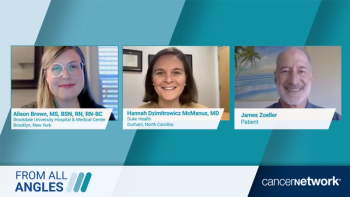
Panelists discuss advanced renal cell carcinoma (RCC), including its epidemiology, typical disease presentation, and the common patient profile in terms of age, gender, and family history, while also addressing the risk stratification for advanced RCC, highlighting the differences between favorable and poor/intermediate risk categories.
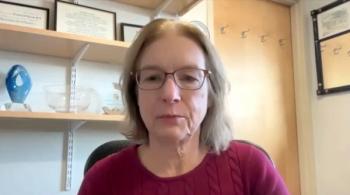
Kidney cancer advocacy efforts have spread the urgency and importance of funding research in the field to members of Congress.
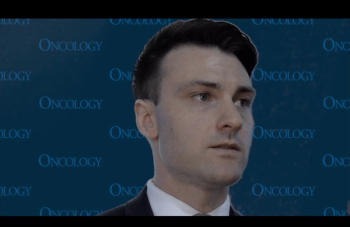
Multiple targeted therapies/sequencing possibilities are available following elacestrant’s approval for patients with breast cancer, Maxwell Lloyd, MD, said.
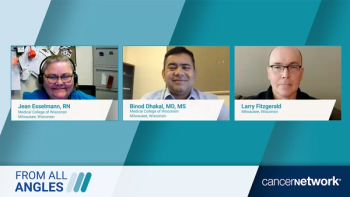
Panelists discuss how health care centers provide comprehensive long-term monitoring and support services for both patients receiving CAR T and their caregivers in the posttreatment period, including regular medical assessments and ongoing educational resources.
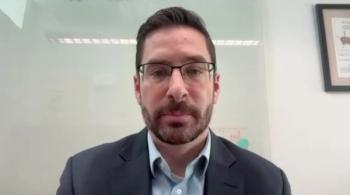
Advocacy efforts have yielded a dramatic increase in kidney cancer research, according to Elizabeth P. Henske, MD.

Panelists discuss how patients and medical teams navigate the complex CAR T therapy journey, from initial referral through cell collection, manufacturing, and infusion, while highlighting crucial monitoring strategies for managing adverse effects such as cytokine release syndrome and neurotoxicity.
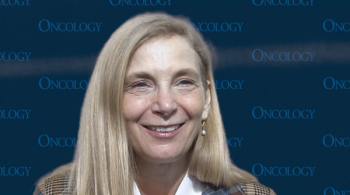
Safety results from a phase 2 trial show that most toxicities with durvalumab treatment were manageable and low or intermediate in severity.

Since elacestrant’s emergence in the real-world setting, it has demonstrated superior efficacy outcomes compared with what the EMERALD study found.
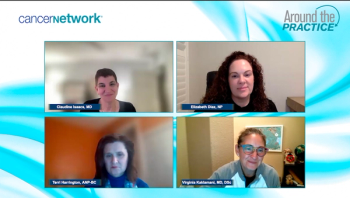
Panelists discuss how the October 2024 FDA approval of inavolisib in combination with palbociclib and fulvestrant for HR positive (HR+)/ HER2 negative (HER2-) metastatic breast cancer with a PIK3CA mutation marks a pivotal advancement in precision medicine, highlighting how agents like such as inavolisib, capivasertib, elacestrant, and alpelisib have transformed treatment approaches and expanded therapeutic options for patients.

Panelists discuss how emerging targeted therapies, including novel PI3K inhibitors and combination treatments, are advancing precision pathways in HR positive (HR+)/HER2 negative (HER2-) breast cancer, offering new hope for personalized treatment and improved patient outcomes.
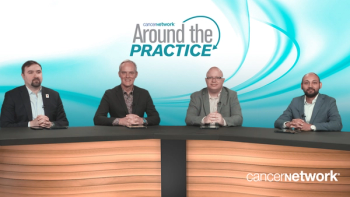
Panelists discuss recent clinical trial findings, including the PERSEUS, CASSIOPEIA, IsKia, and GMMG-HD7 studies, and how these evolving treatment strategies are shaping the approach to frontline therapy for patients with transplant-eligible multiple myeloma.
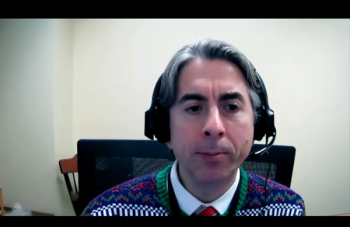
Objective response data from the CK-301-101 trial supports cosibelimab’s approval by the FDA, according to Jason J. Luke, MD, FACP.
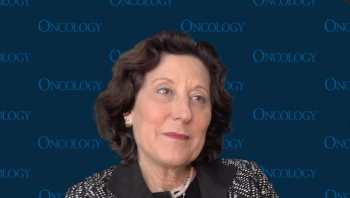
Updated results from the 1b/2 ELEVATE study elucidate synergizing effects observed with elacestrant plus targeted therapies in ER+/HER2– breast cancer.
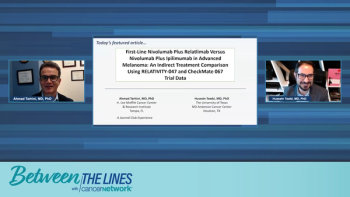
Panelists discuss how using dual immunotherapy regimens for melanoma in real-world practice involves balancing efficacy with safety, patient comorbidities, and treatment accessibility, while also addressing challenges such as immune-related adverse events and treatment sequencing.
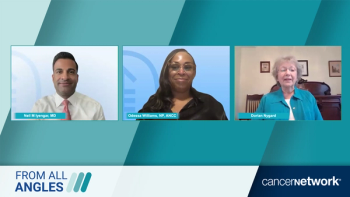
Panelists discuss key aspects of supportive care that aided a patient's journey, including the impact of her primary caregiver's support, the sources of strength drawn from personal, spiritual, or community connections, and the roles of integrative medicine and nutrition in her treatment experience.

Panelists discuss the supportive care considerations for patients being treated for metastatic HER2+ breast cancer, including the roles of nutrition, exercise, and other integrative approaches in enhancing patient well-being and treatment outcomes.

Panelists discuss how treating patients with melanoma and brain metastases requires a multidisciplinary approach, emphasizing the role of immunotherapy, targeted therapy, and local treatments, while considering factors like the extent of metastasis and patient-specific factors.

Patients with ESR1+, ER+/HER2– breast cancer resistant to chemotherapy may benefit from combination therapy with elacestrant.
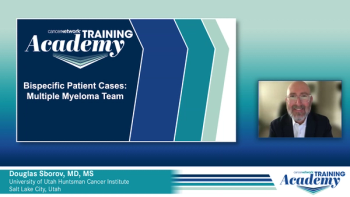
Panelists discuss how this patient was admitted after the day 1 dose of talquetamab for observation for CRS and ICANS. Patients such as this are given a 0.01-mg/kg dose on the first day, a 0.06-mg/kg dose on day 3, and a 0.04-mg/kg dose on day 5 if there are no issues. The patient is then monitored for 48 hours and is discharged before getting the 0.08-mg/kg dose.
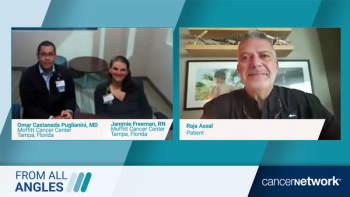
Panelists discuss the chimeric antigen receptor (CAR) T-cell collection, manufacturing, and infusion process, highlighting how it differs from previous treatments, and share the challenges faced during CAR T-cell therapy, including managing adverse effects.
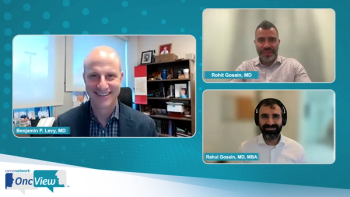
Panelists discuss how thoracic oncologists are adapting to a rapidly evolving treatment landscape for lung cancer, focusing on the integration of novel therapies and the importance of biomarker-driven approaches in patient care.

Panelists discuss how patient 1 is a 76-year-old female with unknown- stage R-ISS, oligosecretory IgG-K/KLC MM currently treated with talquetamab. One year following the talquetamab initiation, she is in VGPR/MRD- (likely CR or sCR as IFE positive is LLC and she has KLC). To spare toxicity physicians have decreased her dosing to monthly, starting with cycle 14 day 1.

Panelists discuss the rationale for considering chimeric antigen receptor (CAR) T-cell therapy in standard-risk multiple myeloma and how health care providers help patients understand and prepare for the decision to pursue CAR T-cell treatment.
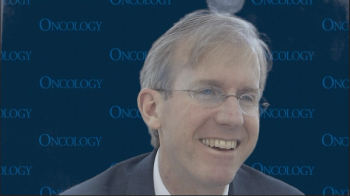
Investigators are currently evaluating mosunetuzumab in relapsed disease or comparing it with rituximab in treatment-naïve follicular lymphoma.

Panelists discuss how a patient and their medical team collaborated to evaluate the differences between ide-cel and cilta-cel CAR T therapies to make an informed treatment decision.